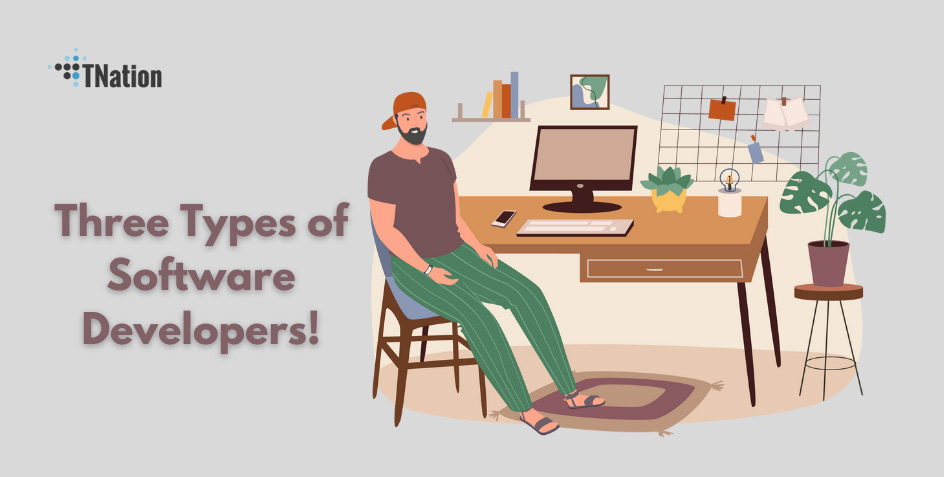There are millions of software developers worldwide, and that number increases every year. Young digitally native people fresh from faculty enter the industry to compete with their senior colleagues. According to industry research, one in sixteen is now over 40 years of age. Although it is not nearly as in the golden age of life, the tech industry debates modern technology relevance in ageing developers. Those who did not dedicate time to stay up to date fit the “old developer group.” However, what happens if their skills are not as outdated as the industry believes, yet many companies are unwilling to hire seasoned developers?
For the past two years, businesses worldwide were forced to move to remote operations on short notice over the last year. Even so, layoffs were common in Silicon Valley, and many seasoned developers accused the global centre of technology of ageism. As a result, experienced developers are frequently forsaken worldwide, particularly in fast-changing IT roles.
There is a Reason Why Grey Hairs are Valuable Among Software Developers
Ageism in the tech sector is not a new term. While IT employers rated Gen X and Baby Boomer performance higher, tech organisations still prefer hiring Millennials. As a result, the tech workforce is relatively young, with people in their 20s and 30s. As many believe, the person over 40 stands out in the team as an ageing developer. This categorisation is mainly due to the wrong company culture.
Another misconception in the tech world is that senior developers are less willing to update their technology skills. Developers, in general, are accustomed to learning constantly. Updating their knowledge or their willingness to stay relevant is individual. It has nothing to do with age, intellectual capacity, or stereotypes but personal interests.
Commonly, old developers are seduced by the industry notion that ageing ensures a manager position. Although, many ageing developers are still within teams writing codes as usual, not because the industry shuns them but because they love their job.
TNation CTO Siniša Medić explains: “Although I refuse to confess, I am an old school programmer. What I usually say to anyone planning to get into the software development industry is to do it because they like the job. The best developers do not just finish projects. They love it and enjoy the results.”
Just Like Art, Code Speaks for Itself
There is a definitive generation gap as in any other industry. In tech, it is about the way generations approach software development. Developers are known to have an artistic view when it comes to code. For them, coding is like painting a masterpiece. Two decades ago, there was no distinction between front-end and back-end developers.
Older developers got used to focusing on writing code in ecosystems that require good coding and great architecture. Such software would last for a long time. Today many of those are obsolete. Nowadays, the majority of companies produce software that reaches the market quickly. Modern technology offers the same and quick results. The quality may not be the same but accomplishes the goal of the business. It begs the question of whether or not this modern-day approach takes away some of the value of the old developers or it adds to the quality of their masterpiece.
Times change, and with it Technology
Stack Overflow is a public platform that serves a community of more than 100 million developers every month. In their recent survey, 7.31% of respondents are between 45 and 54 years of age, with over 20 years of experience.
Technology is ever-changing. Each year a new programming language is introduced. For old developers, it is also the different jargon, including other names for similar old phrases. Staying relevant as age progresses is a significant factor. Companies mostly hire a young workforce because of their recent learning and knowledge, not their age. Although, some may argue since Facebook’s co-founder announced that younger people are more intelligent and more desirable.
It is a fact that younger developers grew up immersed in technology and are naturally accustomed to it. But, it is also a fact that older developers have immense experience in all sorts of technology stacks.
Age diversity within development teams has its merits. Older developers can offer insight from experience, not to mention the ability to handle legacy code. Younger developers have enthusiasm and are innovative. They can also provide new solutions to old problems. Sharing the knowledge and experience benefits young developers as they get senior mentors and guidance that can help them perfect their skills and grow.
Old Developers Obsolete due to the Arrow of Time
As it often happens, companies are reluctant to hire ageing developers because of their salaries. Even so, older and experienced developers are aware of the value of their hard-won skills and are unwilling to accept junior wages.
The valuable experience comes with age, and it appears to be a problem in IT careers. More than half of the developers over 50 do not apply for jobs, as they expect to be deemed too old. On the other hand, they wholeheartedly accept remote work and projects. Meanwhile, the industry professionals are seldom over 35 years old. If age is the problem now, the active developers will be even more immersed in ageism in tech in years to come.
TNation is an outsourcing software development company, and we are always looking for senior developers. In our company, experience is always welcome.



